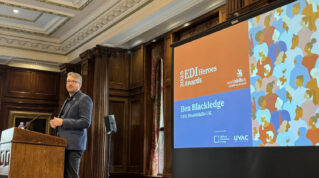To read or listen to the UK media, you’d think the world was overrun with trans people. We’re everywhere. A threat. An ‘issue’ that needs to be resolved and a ‘debate’ that needs to be had. Yes, we exist. We’ve existed forever. But for years we’ve been talked about and not to, doubted not trusted, and often ostracised by the very systems that should be enabling us to reach our potential – our education system. As FE awaits government guidance on how best to support trans people, we want to stress the need for openness and inclusion.
We know how it feels to grow up trans. Growing up in a body that feels alien to you, ‘othered’ by society from an early age, knowing that who you are is perceived as freakish and wrong. Most of us try our hardest to overcome and accept those feelings by effectively hiding our real identity. But we also know the difference support and understanding from friends, family, teachers and peers can make.
That’s why it’s vital that the forthcoming guidance is implemented with inclusion at its core. Trans people who are supported through their transition have the best outcomes. We need a system that listens to the young trans person.
The end goal should be to stop it being an issue at all; for a young person’s gender identity to be irrelevant so that they can just get on with being a young person. In an era of equity, diversity and inclusion, trans people need to be afforded the same opportunities and chances as their non-trans peers – without barrier or hindrance.
This culture of inclusivity needs to begin at the very top, with sector and college leaders and to filter down through every staff meeting and into every classroom. Trans persons should feel safe, respected and supported.
Through our work as patrons of the charity Mermaids, we hear about an education system that falls way short of the support it should be offering and the example it should be setting – educators refusing to correctly gender a young person or refusing to call them by their correct name, and young people being endlessly and cruelly questioned about who they really are.
Our education system falls way short of the support it should be offering
Unsurprisingly, these youngsters very quickly reach a point where they no longer want to go to college and opt for home education instead. These young people are being ostracised to such a degree they are sacrificing all the social inclusion and development that college should bring.
Meanwhile, the education sector is still working with antiquated systems. The Individualised Learner Record (ILR), for example, only recognises male or female. These systems need to evolve to be truly reflective and representative.
When someone comes out as transgender, those around them are likely to be shocked or surprised and, quite often, they might struggle with how best to deal with it. That’s not unreasonable. The guidance should warn against a situation where the fear of saying the wrong thing leads to nothing being said at all, which only results in the trans person becoming cut off or distanced from those around them. Instead, we should be willing to go on that journey with that young person. After all, it’s a circular process – the more open the young person feels they can be, the quicker those around them will learn and the more support they can then offer.
Let’s not treat the trans community the same way we treated the gay community back in the 80s. Let’s not confuse the need for discussions around best practice with fearmongering, and let’s not pretend this is about bathrooms when it’s actually bigotry. Let’s not condone the media turning the ‘issue’ of trans people into a feeding frenzy or allow political parties to turn trans rights into a political football.
Instead, let’s reach a place where society is learning and growing alongside the trans community, until eventually it isn’t a thing and people can just be people.
You can hear more from Jake and Hannah Graf one the Let’s Go Further podcast produced by the Skills and Education Group.


















Your thoughts